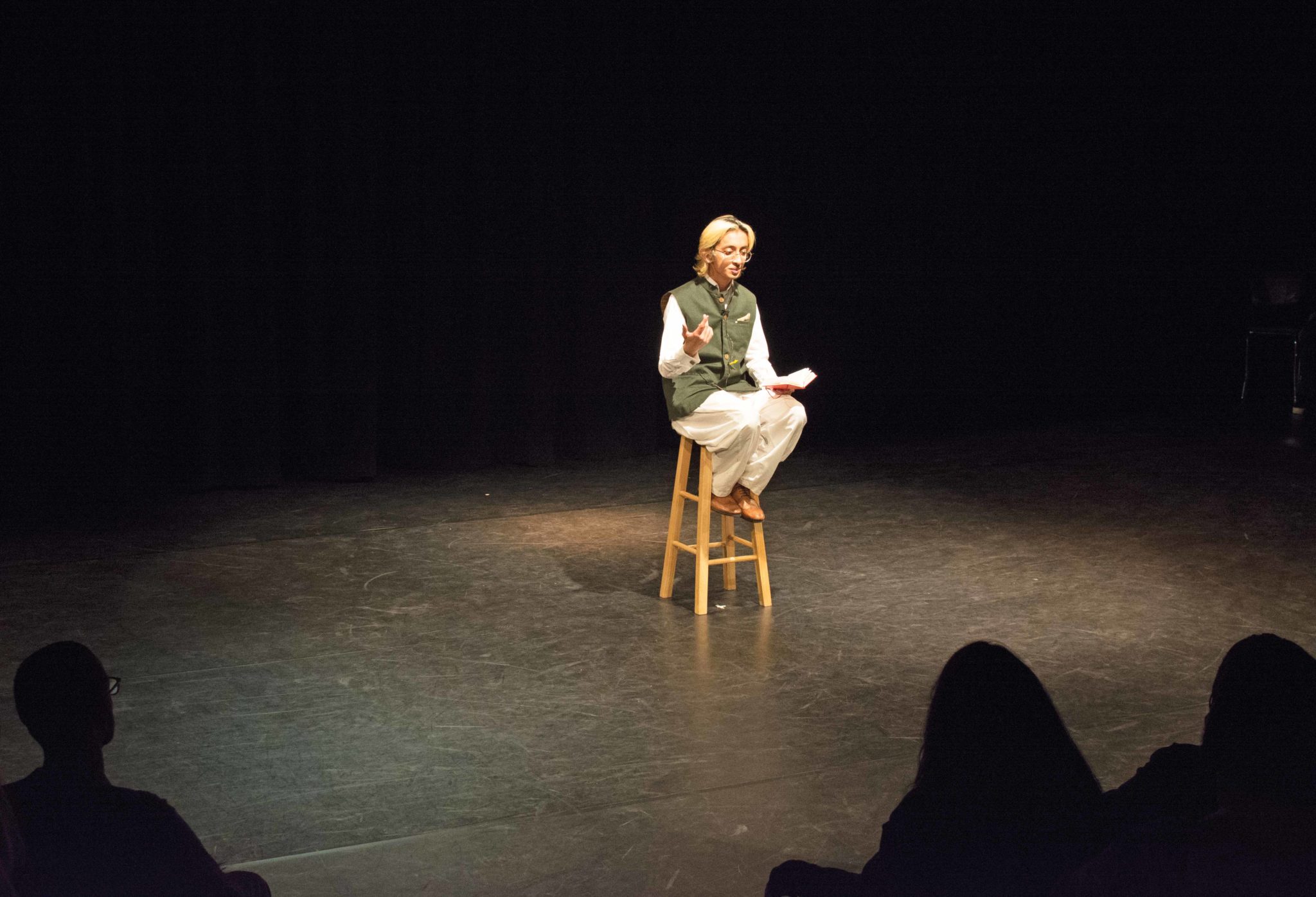
“Every time I ever have a cheeseburger, I ask them to put bacon on it — sometimes extra,” said Zulfiqar Mannan, ’20, before an audience of nearly 100 at Muslim Monologues. “I date boys, have sex out of wedlock and regularly put golden glitter or eyeshadow on my face. And still, when my heart broke last month, I remember hiding in a little courtyard and asking Allah to make it hurt just a little, little, little less.”
On Tuesday, the Yale Muslim Students Association hosted the its Muslim Monologues, an event where students of Islamic backgrounds share their personal experiences as members of the faith through individual performances.
The performance was organized by Sana Mojarradi ’19 and Aaminah B’hat ’18, members of the Muslim Students Association. It was the third in a series of events held in honor of Islam Awareness Week. The show, which was sold out, attracted a diverse religious and cultural audience. The speakers told stories and performed spoken-word poetry to describe how they reconcile their personal identity and religion.
“We live in a country where the only Muslim known is sensational,” performer Ziad Ahmed ’21 told the audience. “Headlines don’t sell when they portray us as we are. Bad Muslim, good Muslim, suspicious Muslim. Not Muslim Muslim.”
Ahmed added that Muslims do not need to act as “stewards of their faith,” but they do have a responsibility to champion humanitarianism.
Each story was unique in its trajectory, but all focused on similar themes: the generational divides in the pursuit of faith, public perceptions of Islamic faith and surpassing heteronormative expectations imposed by society.
Nazar Chowdhury, ’20, a member of the Yale Muslim Students Association who helped organize the event, said no performer claimed to be a spokesperson for Islam but that the thread of Islam ties their experiences together.
Performers addressed the differences between their Muslim experiences in their hometowns and at university in a question-and-answer session after all of the performances had concluded.
“In school I always had to explain my religion is not that different from your religion,” said Lina Goelzer ’19. “Over here, conversations are more about why I believe in a religion, in an intellectual way.”
Performer Ahmed Syed ’18 said that his experiences in college have led him to realize how large the Muslim community at Yale really is.
Several members of the audience were moved to tears by the performances.
“As a Muslim it was really unique for me to hear different perspectives from Muslims on campus,” said Omair Khan ’19, an attendee. “I liked hearing how they grappled with the religions themselves. It was humbling because it helped me understand and appreciate how diverse our religion is. I’m walking away with a renewed understanding of what it means to be Muslim.”
Miho Carey ’21 said she enjoyed seeing the performers saying what they wanted to say about their faith in their own way, without others questioning them.
For B’hat, it was beautiful to see the Yale Muslim community come together to showcase its members’ individual identities and stories.
“Living in America, we often forget that Islam is the religion of roughly 25 percent of the world population — it is by no means a monolith,” Syed told News. “So I hope that one big takeaway for the audience from an event that highlights the beautiful, difficult and most importantly, diverse experiences of Muslims is that we shouldn’t buy in to generalized statements about people, communities and belief systems.”
Both Harvard and Princeton universities have previously held Muslim Monologues.
Jever Mariwala | jever.mariwala@yale.edu







